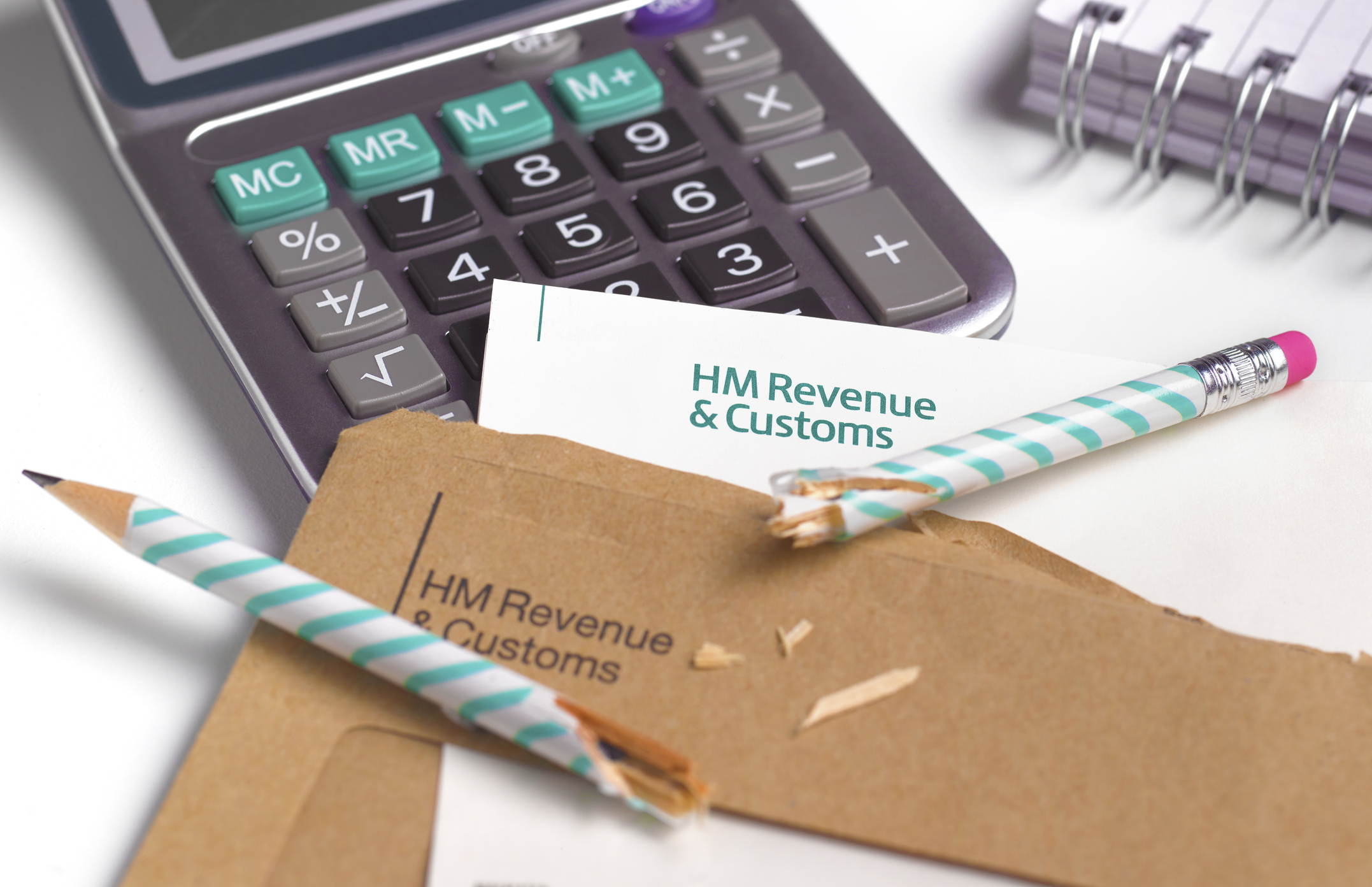State pension top-up deadline extended again to April 2025
Spending just over £907 to purchase NI credits could add £7,740 a year to your pension pot – and now the government has extended the deadline to buy back missing credits.


Get the latest financial news, insights and expert analysis from our award-winning MoneyWeek team, to help you understand what really matters when it comes to your finances.
You are now subscribed
Your newsletter sign-up was successful
Want to add more newsletters?

Twice daily
MoneyWeek
Get the latest financial news, insights and expert analysis from our award-winning MoneyWeek team, to help you understand what really matters when it comes to your finances.

Four times a week
Look After My Bills
Sign up to our free money-saving newsletter, filled with the latest news and expert advice to help you find the best tips and deals for managing your bills. Start saving today!
Pension top-up changes: The deadline for buying National Insurance credits to boost your state pension has been extended to 5 April 2025.
If you have yet to get in touch with the Department for Work and Pensions (DWP), doing so soon could prove a great way to boost your state pension income with very little risk.
Indeed, by spending less than £1,000 today to buy National Insurance credits, you could unlock up to £7,740 in extra income over a typical 20-year retirement period.
MoneyWeek
Subscribe to MoneyWeek today and get your first six magazine issues absolutely FREE

Sign up to Money Morning
Don't miss the latest investment and personal finances news, market analysis, plus money-saving tips with our free twice-daily newsletter
Don't miss the latest investment and personal finances news, market analysis, plus money-saving tips with our free twice-daily newsletter
When is the deadline to purchase NI credits?
Originally the deadline for purchasing additional NI credits was 5 April 2023, but the DWP extended it to 31 July 2023 as its phone lines had become jammed with people seeking to top up their contributions.
This gave people over three months to act – but the cut-off has been pushed back for a second time to 5 April, 2025.
In most cases, you can get a full state pension if you have 35 years' National Insurance contributions. But, if you don’t have the full amount by the time you stop working, you may be able to plug the gap by buying additional National Insurance credits.
Even if you have a personal pension, most people under-save and underestimate how much they need for a pension, meaning a state pension could be nice to have as additional income.
“We recognise how important state pensions are for retired individuals, which is why we are giving people more time to fill any gaps in their National Insurance record to help bolster their entitlement," Vicky Atkins, financial secretary to the Treasury, said.
Is purchasing National Insurance credits a good investment?
The investment platform interactive investor calculates that somebody purchasing 10 years of NI contributions (known as class 3 contributions) at the cost of £9,070 (10 X £907) could boost their state pension by £77,400 over a 20-year retirement, £33,946 over 10 years and £15,927 over five years.
Even purchasing one year of NI contributions at the cost of £907 could boost their state pension by £7,740 over a 20-year retirement.
Low earning self-employed people earning under the small profits threshold of £6,725 in 2022/23 and 2023/24 may be eligible to pay class 2 voluntary contributions, which are cheaper than class 3 contributions. Someone paying class 2 contributions would only need to pay £179 per year to buy an extra year of state pension.
This means that self-employed people with low earnings might be able to buy extra state pension potentially worth £77,400 over 20 years for only £1,794.
Alice Guy, Head of Pensions & Savings, interactive investor, says: “The extension of the national insurance deadline is amazing news for anyone with gaps in their national insurance record and that often includes self-employed people, and anyone who’s taken time out to care for loved ones.
“The good news is that it may be cheaper for some lower paid self-employed people to boost their state pension as it only costs £179 for someone paying class 2 contributions to buy an extra year of state pension. You might be entitled to pay voluntary class 2 contributions if you’ve been self-employed but earnings below the small profits threshold, currently £6,725. You can phone the DWP helpline to find out how much it would cost to make voluntary contributions.
“Self employed people often struggle to save enough for retirement as they don’t have access to a workplace pension and can face periods with a lower income when they can’t afford to pay into a pension. So, it’s vital they keep an eye on their state pension and make sure they receive the maximum possible.
You’ll make the money back as long as you get your pension for three years. Anything after that would be profit, making it a worthwhile investment as this £824.20 outlay would amount to £5,500 over a typical 20-year retirement.
If you purchase back five years of NI for £4,121, that will boost your retirement pot by £27,500 - a staggering return on investment of nearly 600%.
That’s a pretty good return on the initial investment, especially if you’ve got the extra cash and were thinking of investing it in something else.
Currently, men born after 5 April 1951 and women born after 5 April 1953 can pay to plug gaps in their National Insurance record going back to 2006 thanks to the “transitional arrangements” between old and new state pensions.
But from 5 April 2023, workers will only be able to buy back missing contributions from the past six years. So if you have any shortfalls between 2006/2007 and 2016/2017, now is a good opportunity to improve how much you will receive in retirement.
Steve Webb, former pensions minister and partner at consultant Lane, Clark and Peacock, said: “For those who can benefit, investing in state pension top-ups can generate a better ‘rate of return’ than almost any other way of using savings. Someone with 10 missing years could pay out a little over £8,000 to fix the gaps but see a boost of £55,000 in state pension over a typical 20-year retirement.”
Right now, you have until 5 April 2025 to buy voluntary National Insurance credits to plug any gaps between April 2006 and 2016. After that, you can only plug gaps going back six years.
“Under normal rules, it is only possible to fill gaps in your NI record up to six years after the year in question. After that point, the year becomes a permanent gap in your NI record and could affect your ability to build up a full state pension.
It is worth noting that there are exceptions to this, say if you contracted out for example. If you contracted out of a state pension then you may not be entitled to a full state pension even with 35 years’ National Insurance contributions.
Things to check before purchasing National Insurance credits
The full state pension is currently £185.15 a week, or £9,627.80 a year. You need 35 years of National Insurance contributions to qualify for the full state pension, and 10 to qualify for any state pension. Any fewer than that, and you won’t receive any.
But people often have to take breaks from work. Whether it’s due to illness, parenthood, travelling or taking care of someone, it’s normal to have gaps in your employment record.
You can use the government’s State Pension forecast calculator to check if you have gaps in your state pension. This will give you a summary of how much you’re set to receive weekly according to your current and projected contribution level. You can check your National Insurance record if you’re already at state pension age.
After that, check if you qualify for any benefits during your time out which would make you entitled to a voluntary National Insurance credit, such as Child Benefit or Jobseekers Allowance.
“Buying voluntary National Insurance credits is a cost-effective way of boosting your retirement income but it’s important to speak to the Department for Work and Pensions (DWP) before handing over any cash as they will be able to help you work out if you can plug the gaps in another way – such as through backdated benefit claims,” says Helen Morrissey, head of retirement analysis at Hargreaves Lansdown.
“If you were contracted out of the state second pension at any point then this could also affect your state pension entitlement but buying voluntary credits may not boost your income – often when you contracted out your employer would boost your workplace pension contribution so you benefited from a higher workplace pension instead.”
“A final point before deciding to buy voluntary National Insurance is to think about how many more years you are likely to work,” adds Morrissey. “You may have some gaps earlier in your career but if you continue to work then you may still be able to accumulate enough years to get the full amount.”
Get the latest financial news, insights and expert analysis from our award-winning MoneyWeek team, to help you understand what really matters when it comes to your finances.
Nic studied for a BA in journalism at Cardiff University, and has an MA in magazine journalism from City University. She has previously worked for MoneyWeek.
-
 Should you buy an active ETF?
Should you buy an active ETF?ETFs are often mischaracterised as passive products, but they can be a convenient way to add active management to your portfolio
-
 Power up your pension before 5 April – easy ways to save before the tax year end
Power up your pension before 5 April – easy ways to save before the tax year endWith the end of the tax year looming, pension savers currently have a window to review and maximise what’s going into their retirement funds – we look at how
-
 Simple assessment explained as millions brace for unexpected tax bills
Simple assessment explained as millions brace for unexpected tax billsIncreasing numbers of people could get letters from HMRC saying they owe more tax due to frozen thresholds, under a system known as simple assessment. Here is what it means for you.
-
 The most and least expensive countries to be an expat in 2025
The most and least expensive countries to be an expat in 2025With some Brits fleeing the country to avoid seemingly ever-increasing taxes, we look at the most and least expensive countries to emigrate to.
-
 Should state pension age rise to 70? Have your say in government review
Should state pension age rise to 70? Have your say in government reviewThe state pension age review will consider the “merits” of automatic increases tied to life expectancy. If you want to give your view, you’ll need to be quick, as the deadline is looming
-
 What has changed with employers’ National Insurance – and how will it impact you?
What has changed with employers’ National Insurance – and how will it impact you?Will you feel the effects of the National Insurance hike, as businesses warn of redundancies, smaller pay rises and higher inflation?
-
 Conservatives pledge to cut National Insurance again – how much could you save?
Conservatives pledge to cut National Insurance again – how much could you save?News A 2p reduction in National Insurance is a key feature of the Tory’s general election manifesto.
-
 Workers set for new national insurance tax cut – how much will you save?
Workers set for new national insurance tax cut – how much will you save?News National insurance tax rates have fallen but frozen allowances may limit the benefits.
-
 Budget 2024: National Insurance cut, a new British ISA, and reform of the child benefit charge - here’s what has been announced
Budget 2024: National Insurance cut, a new British ISA, and reform of the child benefit charge - here’s what has been announcedThe chancellor has announced a host of changes, including cutting National Insurance again, and abolishing some tax reliefs. Here’s how the Budget will affect your finances.
-
 Brace for a year of tax rises
Brace for a year of tax risesThe government is strapped for cash, so prepare for tax rises. But it’s unlikely to be able to squeeze much more out of us.
